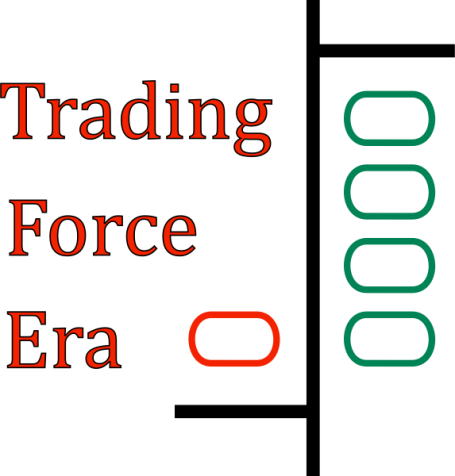Getting Started
FOREX
1.0
What is Forex?
Forex, or foreign exchange, is the world’s marketplace for trading currencies. It enables individuals, companies, and governments to swap one currency for another—whether it's for international travel, business deals, or investing.
What's fascinating is that it's the largest financial market globally, with over $7 trillion changing hands every day. Unlike the stock market, forex never sleeps during the week—it runs 24 hours a day, five days a week, across key cities like New York, London, Tokyo, and Sydney.
Currencies are always traded in pairs, such as EUR/USD or GBP/JPY, meaning you're simultaneously buying one currency and selling another. Traders aim to profit from the fluctuations in exchange rates, which are driven by factors like interest rates, economic data, inflation, and global events.

STOCKS
1.1
What are Stocks?
Stocks are essentially tiny pieces of ownership in a company. When you buy a stock, you're buying a share—a small slice of that company. If the company does well, your slice might become more valuable. If it pays dividends, you might even get a bit of profit just for holding onto it.
People invest in stocks to try and grow their money over time. The stock market is where all this buying and selling happens—kind of like a giant global marketplace of companies and investors.

OPTIONS
1.2
What are Options?
Stock options are like special contracts that give you the right, but not the obligation, to buy or sell a stock at a specific price within a certain time period. They're a popular tool in both investing and employee compensation.
There are two main types:
- Call options – Let you buy a stock at a set price (called the strike price) before a certain date. Investors use these if they think the stock price will go up.
- Put options – Let you sell a stock at a set price before a certain date. These are used when investors believe the stock price will go down.
Options can be a bit like strategic chess moves in the stock market—used carefully, they can limit losses or boost gains, but they're also riskier than just buying shares outright.

FOREX/STOCKS
1.3
Hours Of Operation
The forex (foreign exchange) market is open 24 hours a day, five days a week, thanks to its global nature. But it’s not always equally active—trading volume and volatility vary depending on which financial centers are open. Here’s how the major trading sessions break down in Eastern Time (ET):
- Sydney: 5:00 PM – 2:00 AM
- Tokyo: 7:00 PM – 4:00 AM
- London: 3:00 AM – 12:00 PM
- New York: 8:00 AM – 5:00 PM The most active trading happens when sessions overlap—especially London and New York (8:00 AM – 12:00 PM ET). That’s when you’ll see the highest liquidity and tighter spreads, which is great for traders looking for fast-moving markets.
The Stock markets world-wide have varied hours. Please see the hours below;
North America
- New York Stock Exchange (NYSE) & NASDAQ: 9:30 AM – 4:00 PM (ET), Monday to Friday
- Toronto Stock Exchange (TSX): 9:30 AM – 4:00 PM (ET), Monday to Friday
Europe
- London Stock Exchange (LSE): 8:00 AM – 4:30 PM (GMT)
- Frankfurt Stock Exchange (XETRA): 9:00 AM – 5:30 PM (CET)
- Euronext (Paris, Amsterdam, etc.): 9:00 AM – 5:30 PM (CET)
Asia-Pacific
- Tokyo Stock Exchange (TSE): 9:00 AM – 3:00 PM (JST), with a lunch break from 11:30 AM – 12:30 PM
- Shanghai Stock Exchange (SSE): 9:30 AM – 3:00 PM (CST), with a lunch break from 11:30 AM – 1:00 PM
- Hong Kong Stock Exchange (HKEX): 9:30 AM – 4:00 PM (HKT), with a lunch break from 12:00 PM – 1:00 PM
- Australian Securities Exchange (ASX): 10:00 AM – 4:00 PM (AEST)
These are the standard hours, but many markets also offer pre-market and after-hours trading, especially in the U.S., where extended hours can run from 4:00 AM to 8:00 PM ET.

ALL
1.4
Brokers
Most retail investors—people like you and me—use online brokers to manage our trades.
There are a few key types:
- Full-service brokers: Offer personalized investment advice, research, and even financial planning. They’re usually more expensive.
- Discount/Online brokers: Let you trade independently, often with low or no commission fees. Think of platforms like Questrade, Interactive Brokers, or Wealthsimple in Canada.
- Forex brokers: Specialize in currency trading and often provide leveraged trading, technical tools, and fast execution for active traders.
In exchange for their service, brokers may earn money from commissions, spreads, or platform fees. Some also earn interest on uninvested cash in your account or offer premium services for extra cost.

ALL
1.5
Market Participants
Central Banks and Governments
They intervene to stabilize or steer their country's currency. For example, they might buy or sell currencies to control inflation or maintain competitiveness in exports.
Commercial Banks and Financial Institutions
These are the heavy hitters. Big banks like JPMorgan, Citi, or HSBC facilitate massive currency trades for clients—or themselves.
Multinational Corporations
Businesses that operate across countries trade forex to hedge against currency risk. For example, a Canadian company importing goods from Japan may exchange CAD for JPY to lock in predictable costs.
Institutional Investors and Hedge Funds
They trade large volumes of currency as part of global investment strategies, often using sophisticated models, algorithms, or arbitrage.
Retail Traders
That's individuals like you and me who trade through online platforms. They range from beginners to pros and usually trade with smaller amounts, sometimes using leverage.
Brokers and Market Makers
They provide platforms and liquidity so that buyers and sellers can connect smoothly. They profit off spreads, commissions, or both.
Travelers and Tourists
Though not actively trading, they participate in currency exchange when swapping money for trips abroad—technically still part of the forex ecosystem.

